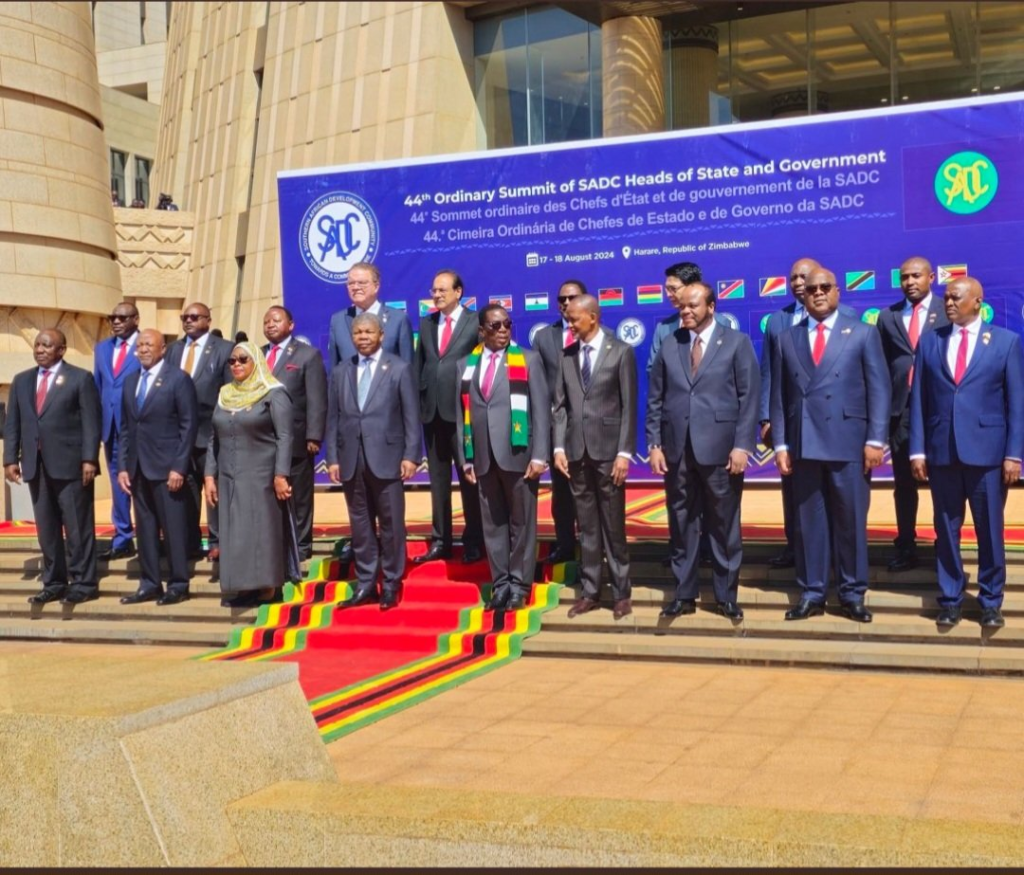ZIMBABWE’S MNANGAGWA FAILS TO REVERSE SADC ELECTION FRAUD REPORT

Zimbabwean President Emmerson Mnangagwa has been unable to use his position as the new chairperson of the Southern African Development Community (SADC) to change the regional body’s stance on the flawed election report that cast doubt on his re-election. Despite his efforts, SADC has not withdrawn its official election observer mission report, which was approved by its extraordinary summit in Angola and a special ministerial meeting in Zambia last year. This report is important because it officially declared that the elections held in Zimbabwe last August were marred by illegalities and fraud.
The SADC election observer mission, which monitored the elections, concluded that the polls did not meet the standards set by Zimbabwe’s own constitution or the SADC principles and guidelines for democratic elections. The report stated that the election process was not free, fair, or transparent. Mnangagwa, who claimed victory in the election along with his party, ZANU-PF, was left with a cloud of illegitimacy over his leadership due to this report.
Zambian President Hakainde Hichilema, who was chairperson of the SADC troika of the organ on politics, defence, and security at the time, did not attend the Harare summit in protest of the election results. Although Hichilema acknowledged that elections in SADC member states during his time as chairperson were “reasonably peaceful,” he did not retract the SADC election observer mission’s report. Hichilema sent Nevers Mumba, the former vice president of Zambia, to lead the delegation to Zimbabwe. The report that Mumba and his team produced was officially recognized and endorsed by SADC.
Because the report has not been withdrawn, SADC still officially sees Mnangagwa as a leader who came to power through a flawed and fraudulent process. This situation has created a significant problem for Mnangagwa. His recent appointment as the chairperson of SADC, which is a rotational position among member states, has not fixed his legitimacy issue. As long as the report remains the official record, Mnangagwa’s leadership is questioned.
The ongoing dispute highlights a broader problem within SADC. The regional body has shown a reluctance to take a clear and strong stand against undemocratic practices among its member states. Hichilema’s actions have put a spotlight on this issue. He took a firm stance against the fraudulent election in Zimbabwe, which has now caused a diplomatic conflict between Zimbabwe and Zambia. Lusaka, the capital of Zambia, has asked for SADC and the African Union to help resolve the dispute.
This diplomatic tension is significant because it shows how serious the consequences of the flawed election report are. The fact that SADC, under Hichilema’s leadership, refused to ignore the problems in Zimbabwe’s election suggests that there are deep concerns within the region about democratic governance. However, the failure of SADC to take more decisive action against Mnangagwa and his government also exposes the limitations of the regional body when it comes to dealing with powerful leaders who do not follow democratic principles.
Mnangagwa’s inability to reverse the SADC report shows that his leadership is still under scrutiny, not just by opposition parties and civil society in Zimbabwe, but also by regional and international observers. The SADC report continues to be a significant obstacle to his legitimacy as president. It also raises questions about the future of democracy in the region and whether SADC can effectively promote democratic values among its members.
In conclusion, Mnangagwa’s position as SADC chairperson has not solved his legitimacy crisis. The official SADC report on the Zimbabwe elections remains unchanged, and this keeps the question of his leadership open. The diplomatic tensions with Zambia and the broader concerns about democracy in the region underline the challenges that SADC faces in upholding democratic standards among its member states. As long as the report stands, Mnangagwa’s leadership will continue to be viewed with skepticism both at home and abroad.





Mnangagwa’s failure to reverse the SADC election report just proves that his so-called victory was a sham. The fact that the regional body won’t budge speaks volumes about the level of fraud that took place. It’s clear that his leadership lacks legitimacy, both at home and across the region.
This situation shows how weak SADC has become when dealing with corrupt leaders. Even though they know Mnangagwa’s election was fraudulent, they’re doing very little to hold him accountable. It’s time SADC took a stronger stand instead of allowing leaders like Mnangagwa to manipulate the system. The failure of Mnangagwa to use his influence as SADC chair to undo the election report shows that his leadership is crumbling. If his own regional partners are unwilling to back him, it’s clear that his presidency is built on shaky ground. The people of Zimbabwe deserve better.
It’s embarrassing that Mnangagwa can’t shake off the illegitimacy of his presidency even with the title of SADC chairperson. No matter how much power he tries to flex, the reality of the flawed elections remains. This is a clear sign that the region is fed up with undemocratic practices.
It’s good to see that SADC is holding its ground and refusing to withdraw the election report. The region needs to stand up for democratic principles, and it’s encouraging that Mnangagwa’s attempts to reverse the findings have failed. This shows that regional bodies can stand for what’s right, even when pressured by powerful leaders.